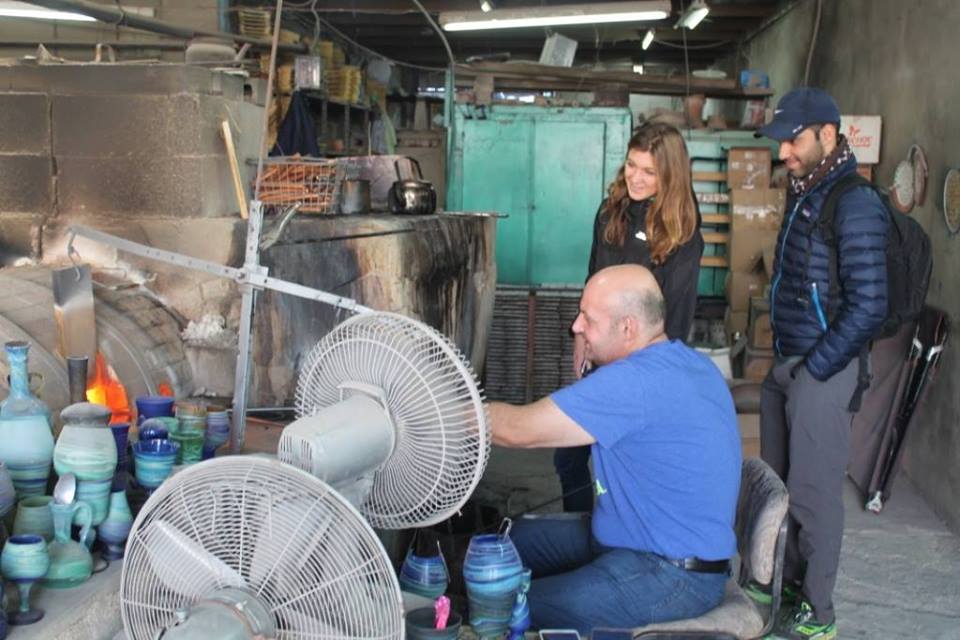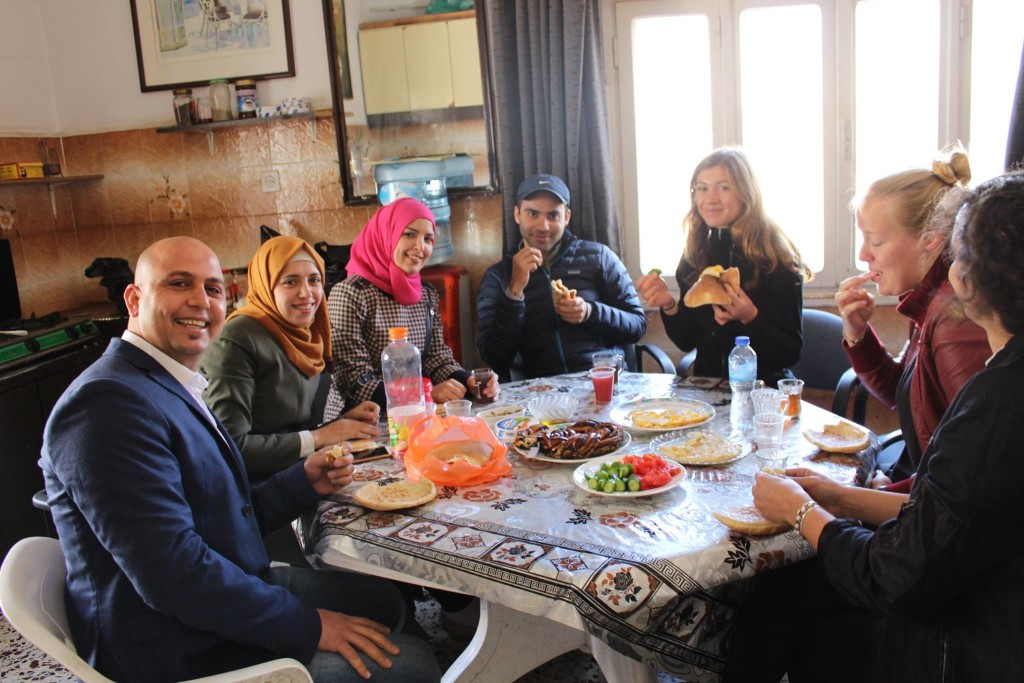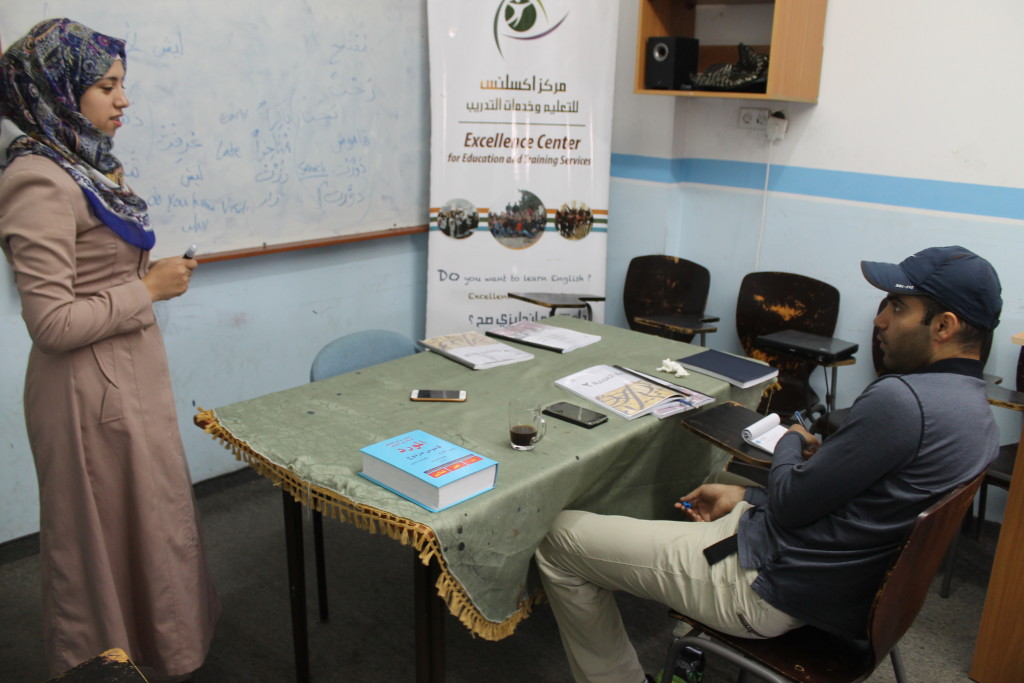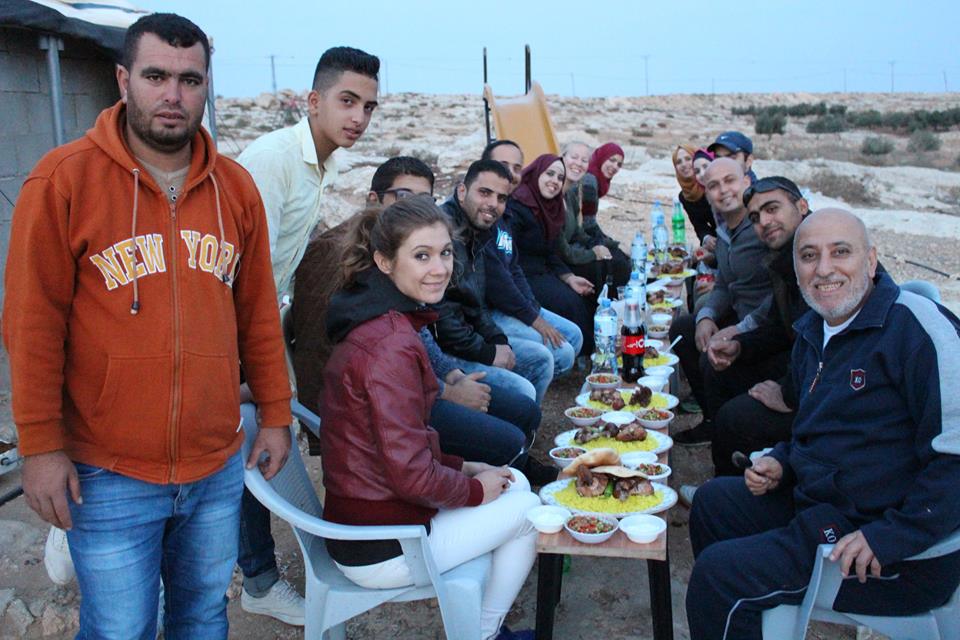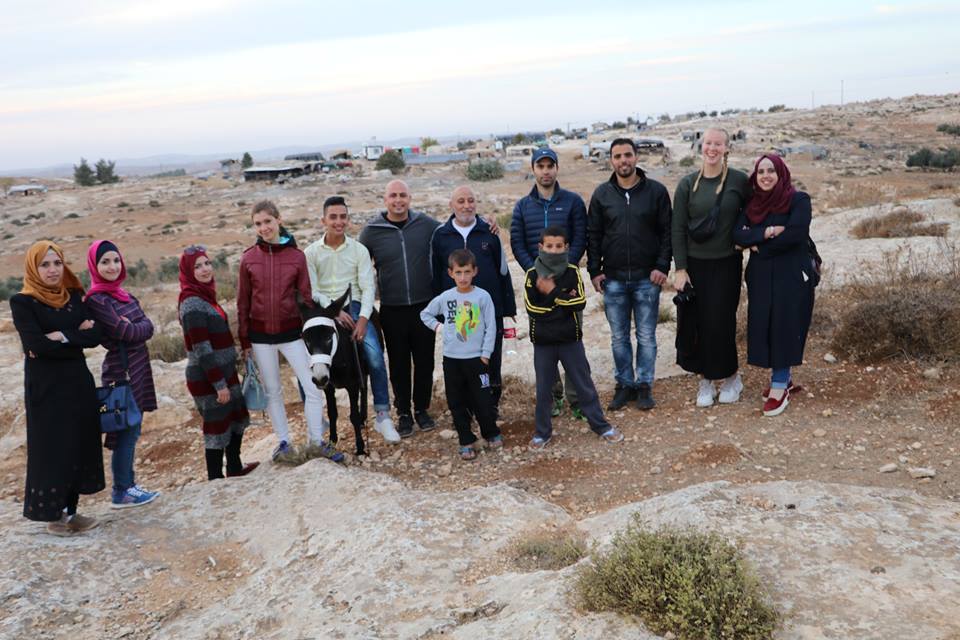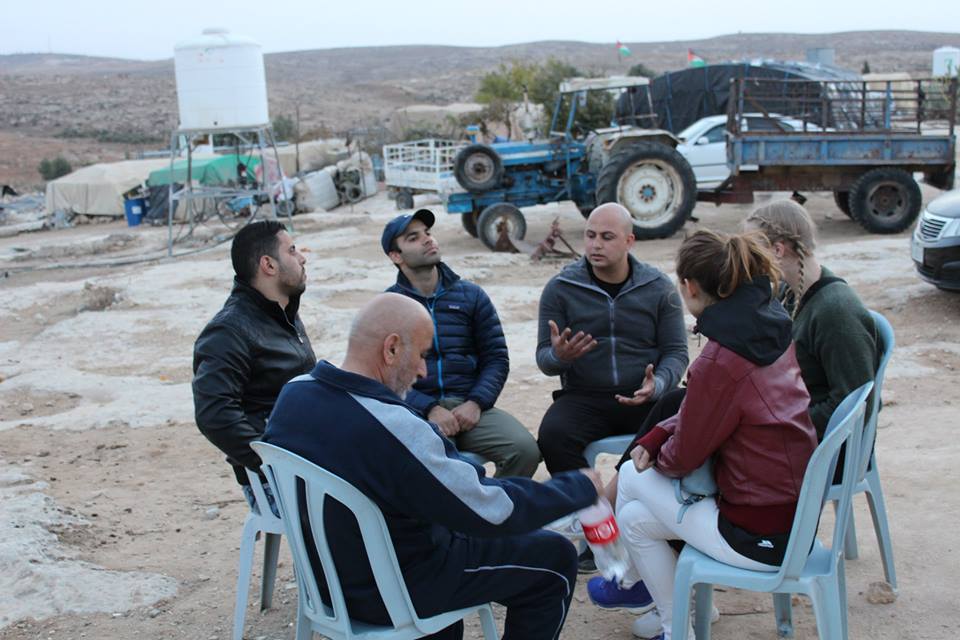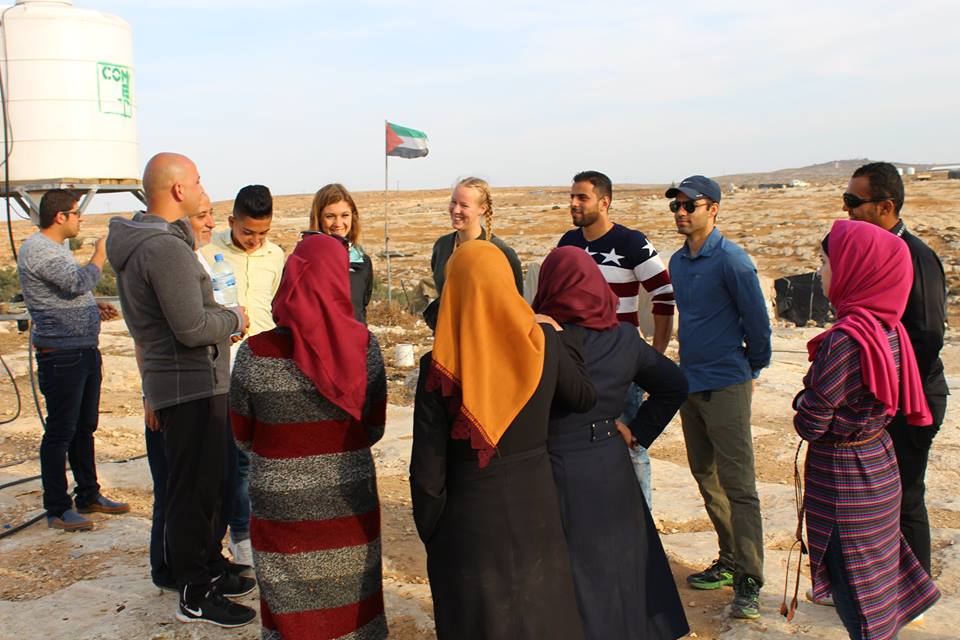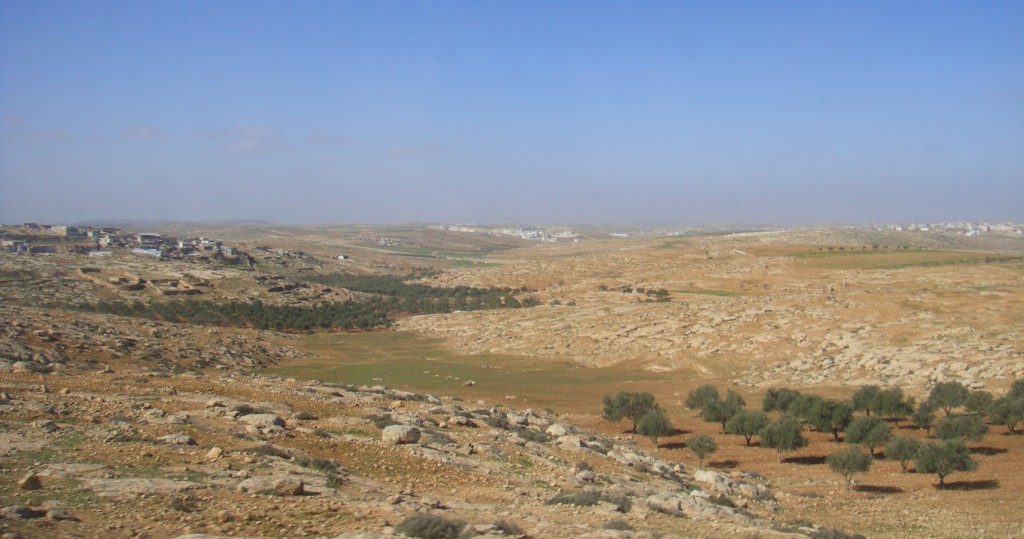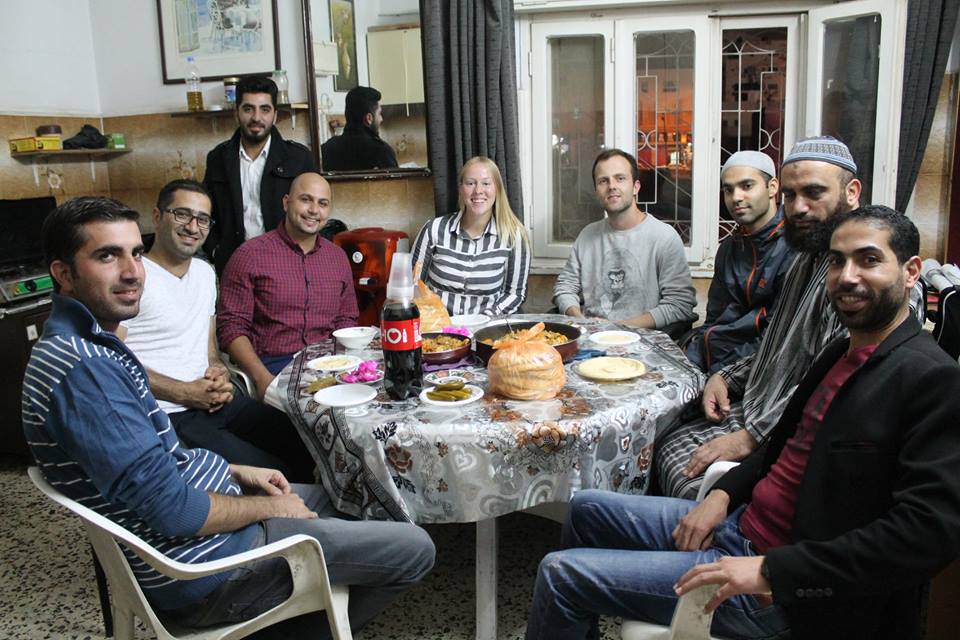Talha, 29 came from Canada to learn classical Arabic (MSA) for a month with the EC in order to understand the Koran.
At Tel Aviv I was stopped by security for three hours and interrogated… three hours of stupid questions about my job in Canada, why I came here, if I knew anybody here, how long I’m staying here… It might be a lot harder to answer the questions the next time around now I know so many people here.
After the airport security issues, getting to Hebron was pretty easy. From the airport I got a bus to Jerusalem, where I spent two nights. The bus from Jerusalem dropped me on the Jewish side of Hebron (Khalil) and from there I got a cab to the Centre. My taxi driver also knew where the Centre was on Ein Sara Street, which was really useful since the street is pretty long. After I arrived at the Centre, I got an orientation presentation which was good, telling me about safety in Israel, things I need to be aware of, some practical advice, and information about local customs.
Since I’m a guy, I don’t have a host family, so after presentation I was shown by Rafat, Centre manager to the EC dormitories. The dorms are about 10 minutes easy walk from the Centre, or 2.5 shekel 2 minute cab ride. Typically in the evenings I eat outside the dorms since food is so cheap if you just want like a falafal sandwich or shawarma. Sometimes though, I go to nicer restaurants, or I’m invited to a home cooked meal with someone from the Centre.
Palestinians are very warm welcoming people and it’s a very closed society, you know, it’s under occupation. They typically don’t get a chance to travel outside of Palestine, so people are really eager to share their experiences and ask about my life in Canada. I’m often told this is the first time that a person is meeting a Pakistani. Our passport says not valid for Israel on it, so that’s not surprising. But people also really open up here, about their lives. They tell you everything you know… the amount of times I’ve heard people say they’d love to own a car but they can’t afford it since cars are so heavily taxed by the Israelis.
One of my neighbours asked me round for coffee, and told his friends I was coming. Before I’d been sitting in his lounge for five minutes, his brother turns up to talk to me, and then some of his neighbours – just like that – that would never happen in Canada. People can really talk here… I guess partly because they don’t have a lot of outside activities to do, they often just sit in the lounge, talk and smoke, and relax.
Times like that were a good opportunity to use Arabic a bit. Fusha, which I’m learning, is also 70% similar to regional dialect (the pronunciation is different, and a few words) so if you have a grasp of Fusha, the transition to spoken dialect is quite easy. When I started studying with the Centre, I was at Beginner one level and I studied one month for 15 hours per week. At the beginning, I knew how to read – not very well but – moderate level because I’m Muslim. I felt from the lessons that I could quite quickly begin to start to break down lines from the Koran and understand it. Even after just two weeks I had enough vocabulary to start recognising a few words, here and there.
The lessons were good and pretty varied. We translated small suraah from the Koran, and one lesson we listened to the national anthem, mawtani (my homeland), and translated it. Another cool thing about my experience here was meeting a lot of foreigners at the Centre. Like I’d never properly met a British person before, but I met a British girl here, as well as people from Denmark, and Norway, and everywhere. It’s rare to have the chance to meet people from all over the world like that.
We did a lot of trips together, both with the Centre and in our own time. The staff here took us to Battir one Friday, which was a very nice hike close to Bethlehem. The landscape is really striking – all arid and rocky – very different to Canada.
After Battir we went to Soussia, which was a rural Bedouin village. Soussia is under threat from occupation and settler expansion. They don’t have access to electricity because they’re forbidden to construct anything, and their wells are often demolished. Also the caves they’d been living in were filled in by the Israeli Government, so they’re living in erected tents. It’s sad, but really important to see how people are living in the face of the occupation.
My favourite trip was without doubt Jerusalem. Being in Al-Aqsa mosque and Dome of the Rock was a really special feeling as a Muslim. It’s the third holiest site in Islam, so I felt very happy and very privileged to be able to be there and pray there. Jerusalem is a very beautiful place; there’s a lot of history here.
After Friday prayer at the mosque, I went into the Arab quarter, which is so lively with people buying and selling you get totally lost in the crowd. And at the same time as you see people selling like galaxy phones, you feel so much history every it’s like a museum. The ancient walls and cobblestone road, and so many old buildings. Every army that came here has left something behind; the Crusaders, Muslims, Jews, it’s an incredible place.
What’s also amazing is that when you’re in the old city in Jerusalem, you see all of the Abrahamic faiths. The Wall of the Al-Aqsa mosque is also the Western Wall, so when you’re the mosque you can see the Wall like fifty metres away. I felt like all of these religions with a special connection to this place are so close together; we come from the same source. But at the same time, we don’t talk to each other. The Jews and Arabs, but we don’t talk. Christians talk to me more, but politics poisons all of that.
There are so many things to see here in Palestine, and everything is so close by. Twenty minutes from the Centre, and you’re in Bethlehem, forty five, and you’re in Jerusalem. And there’s really local things to do as well, like Battir and Masaba.
